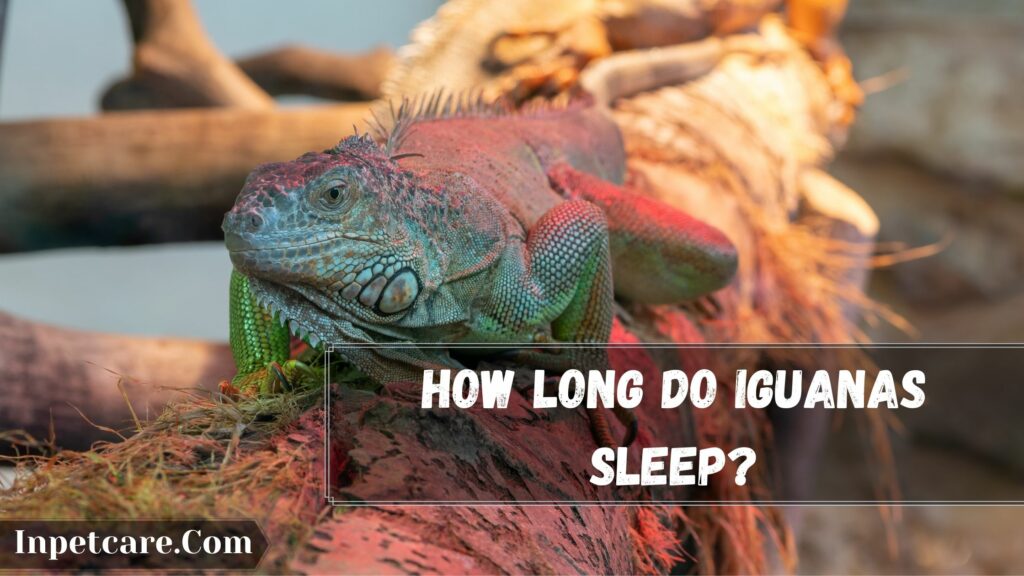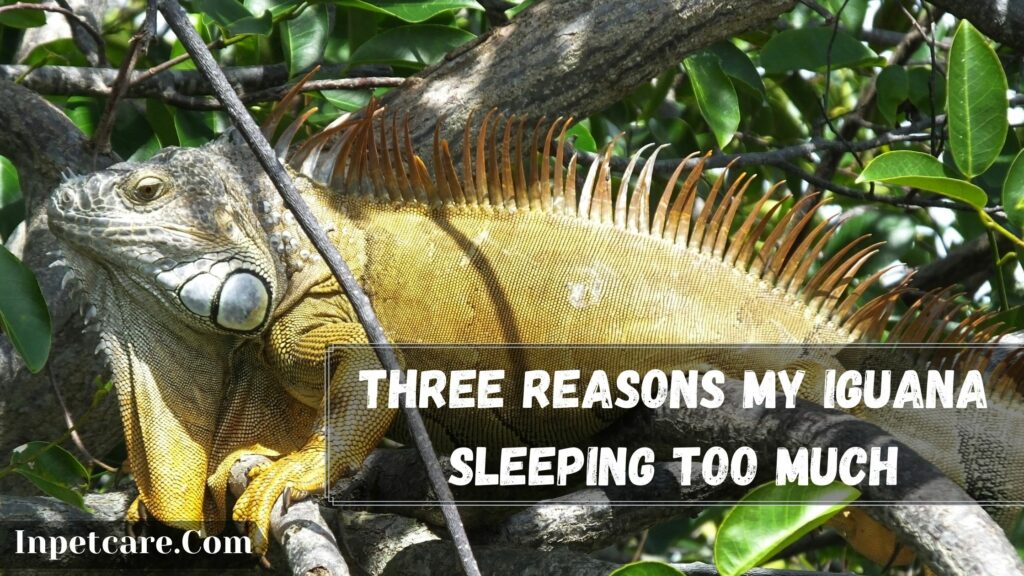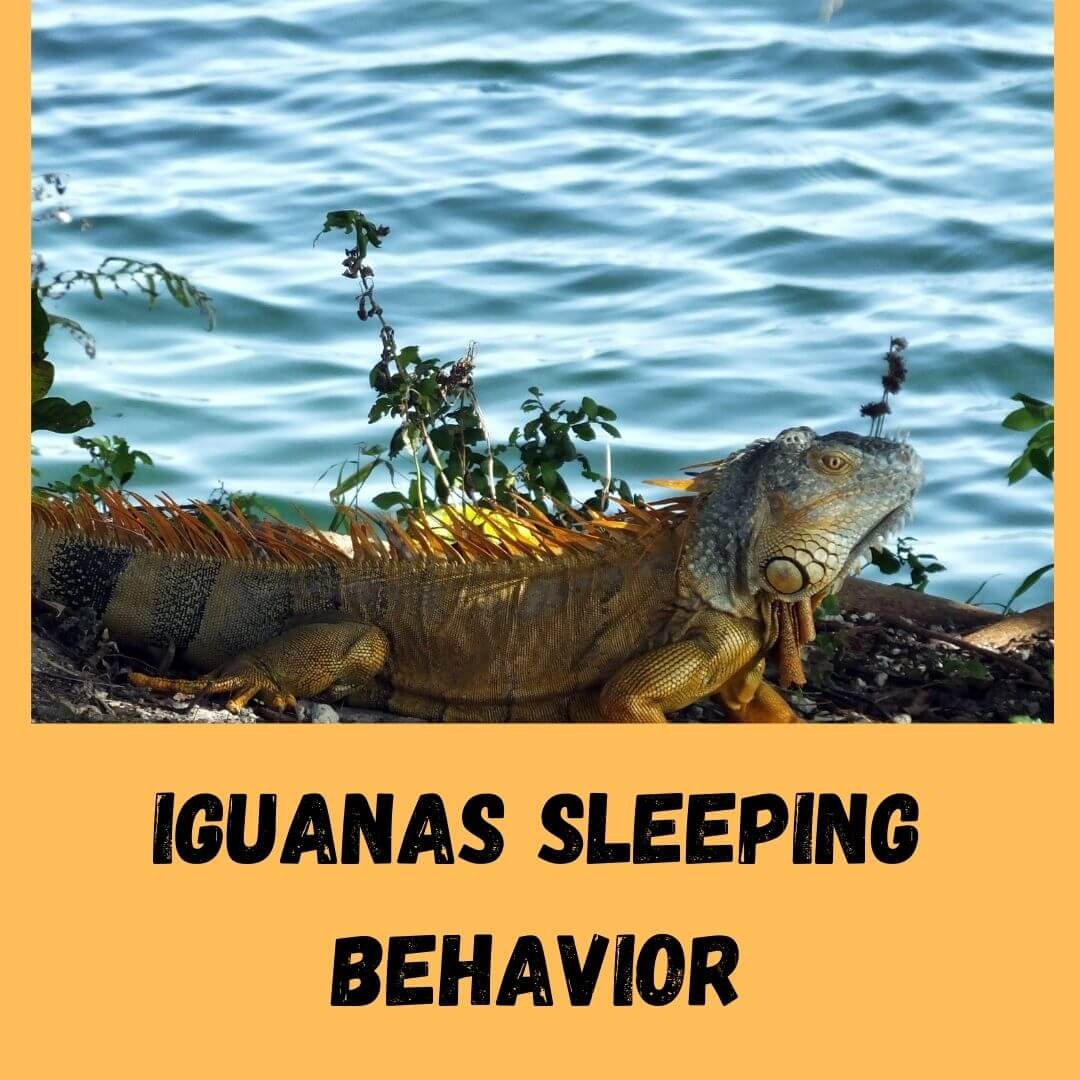Iguanas Sleeping Behavior: In many ways, Iguanas sleep just like humans do: at night, with the lights off, usually lying down. Some of the Iguana sleeping habits and positions may seem very strange. Some Iguana sleep habits are weird, some cute, and yet totally healthy. By understanding how your little reptile sleeps, you can ensure you are taking good care of them during that vulnerable time.
Post Contents
- How Long Do Iguanas Sleep?
- 5 Surprising Iguanas Sleeping Behavior
- #1. Iguanas Sleeping Behavior: Iguanas Strange sleeping positions
- #2. Iguanas Sleeping Behavior: Iguanas Sleep for days, weeks, or months at a time.
- #3. Iguanas Sleeping Behavior: Iguanas Change color while sleeping.
- #4. Iguanas Sleeping Behavior: Iguanas like to sleep on trees.
- #5. Iguanas Sleeping Behavior: Iguanas Breath very slowly
- Let’s take a look At the FAQ on Iguana’s Sleeping Behavior.
- When Do Iguanas Sleep?
- Do Iguanas Dream?
- Where do Iguanas sleep in the wild and in captivity?
- 3 reasons Why My Iguana sleeping too much
- FAQ
- Do Iguanas close their eyes When they sleep?
How Long Do Iguanas Sleep?

Iguanas sleep for about 8-12 hours, i.e., from the time their lights go off to when they come on in the morning. They may sleep for more hours in winter since days are shorter than nights. Sleep is crucial to these pets as it helps reduce stress, promote growth, development, body repair, and optimum health (strengthen immunity), among other things.
Therefore, ensure they have an interrupted regular cycle of day and night, i.e., they should go to bed and wake up at the same time each day. To achieve this, invest in good day and night timers. For instance, the Zilla Reptile Habitat Lighting & Terrarium Heat Power Center is an excellent way to program when heat and light go on and off.
Finally, if you have a thermostat, set the nighttime temperature to 70 °F and 75°F. However, if your ambient temperatures don’t go below 65 °F, you don’t need nighttime heat lamps.
5 Surprising Iguanas Sleeping Behavior
#1. Iguanas Sleeping Behavior: Iguanas Strange sleeping positions
Though Iguanas usually sleep lying on their stomachs, there are many other positions some may use. Some Iguanas will sleep up in a tree, a vertical position in the wild. So it is not such a stretch for some of them to sleep upright in their enclosure, only they may not have a tree.
#2. Iguanas Sleeping Behavior: Iguanas Sleep for days, weeks, or months at a time.
During the late fall and winter months, it’s not unusual for Iguanas to sleep for days, weeks, or even months. This is because your Iguana has entered a period called brumation. Brumation is essentially hibernation for reptiles. Iguana brumation sleeping
#3. Iguanas Sleeping Behavior: Iguanas Change color while sleeping.
You might notice your Iguana changing to a lighter color when it’s asleep. This is normal – researchers have found that Iguanas turn a lighter shade at night due to their circadian rhythm.
#4. Iguanas Sleeping Behavior: Iguanas like to sleep on trees.
Sometimes Iguanas like to sleep themselves in trees when they sleep. If you find your Iguana sleeping buried under a tree, you are not alone! While you should ensure no negative reason for this behavior (for instance, an annoying light it is trying to get away from or a more dominant Iguana in the cage), there is nothing inherently abnormal in this habit.
#5. Iguanas Sleeping Behavior: Iguanas Breath very slowly
It can be a shock to find your Iguana sleeping and not be sure if it’s breathing. Fortunately, this is often a false alarm. Iguanas can seriously slow their metabolic and respiratory rate when they’re in a deep sleep.
Sometimes they can breathe so slowly and quietly that you can’t tell if they’re alive. By all means, check and be sure everything is ok. As you become more familiar with your Iguana, you should be able to detect when it is ok.
Let’s take a look At the FAQ on Iguana’s Sleeping Behavior.
3 reasons Why My Iguana sleeping too much

While we have noted that Iguanas snooze for an average of 8-12 hours. However, sometimes these pets may slumber more even during the day. What are some of the reasons why this happens?
Interesting Further Reading
- Are Bearded Dragons And Iguanas The Same?
- Iguana Vs Monitor Lizard: 7 Key Differences
- 3 Ways To Tell If Iguana Is Male Or Female
Cold terrarium
Secondly, if your Iguana seems to spend more time napping than usual, you need to check your terrarium temperature since if it goes too low, this pet will be less active and spend more time sleeping. Buy an accurate thermometer and ensure the basking temperature is 100°F – 110°F or ten points lower for hatchlings while the colder side temperature is 85°F -95°F. Remember, these pets cannot digest their food if they are complex, and if the low temperature stays for a long time, they may become lethargic, ill, and have other health problems.
UV lighting
Wrong UV light intensity may be why your Iguana spends much time lying in its hiding place. Did you know that UVA regulates the circadian cycle (wake-sleep cycle) in a day and other daily and seasonal activities like eating, breeding, and so forth? Therefore, ensure you have an adequate UVA/UVB light. Try brands such as Zoo Med Repti Sun 10.0 or MyComfyPets UVB Light and UVA 2-in-1 Reptile Bulb 100W bulb.
Sickness
When ill, most Iguanas will not only sleep for longer but also be lethargic, lack appetite, and lose weight, amongst many other symptoms specific to various diseases or conditions afflicting them. Let your herp vet conduct a proper diagnosis and treat them accordingly. Don’t ignore any signs of illness.
FAQ

94% of pet owners say their animal pal makes them smile more than once a day. In 2007, I realized that I was made for saving Animals. My father is a Vet, and I think every pet deserves one. I started this blog, “InPetCare”, in 2019 with my father to enlighten a wider audience.
